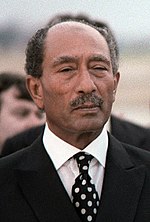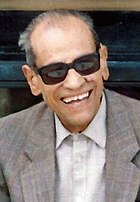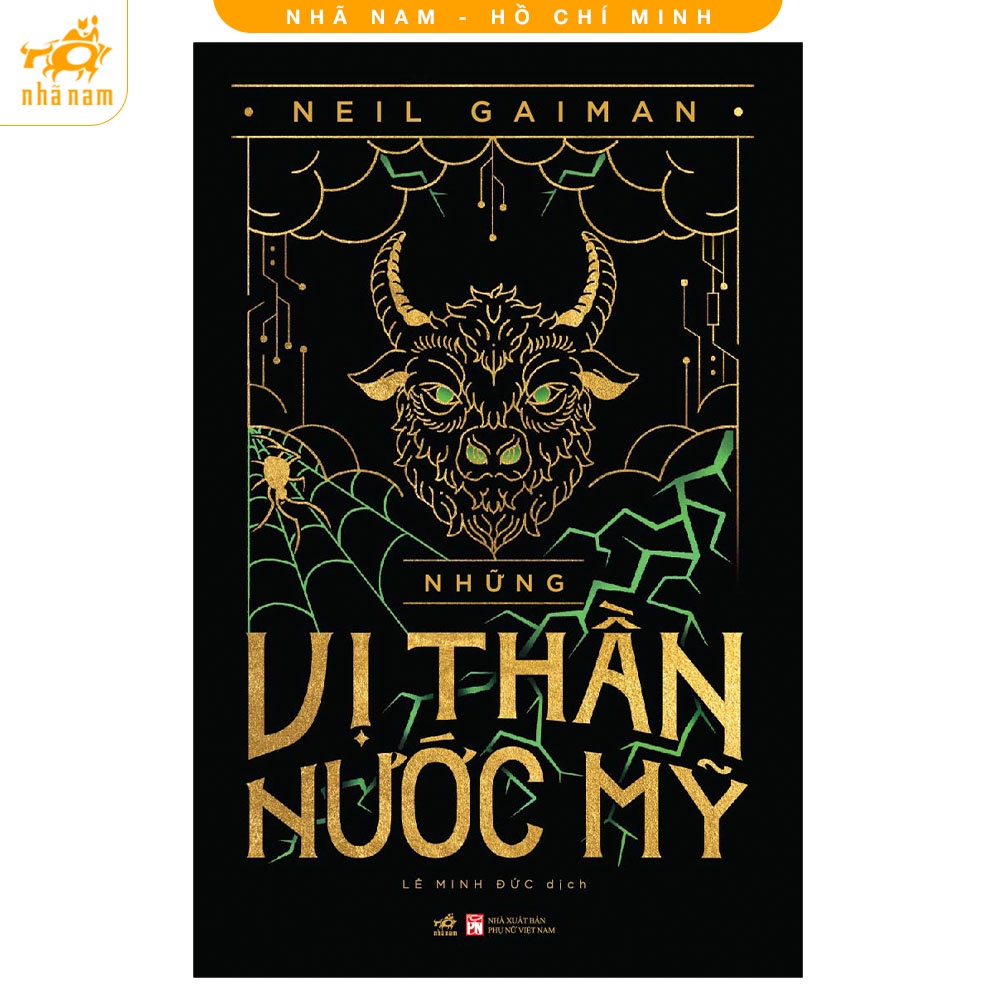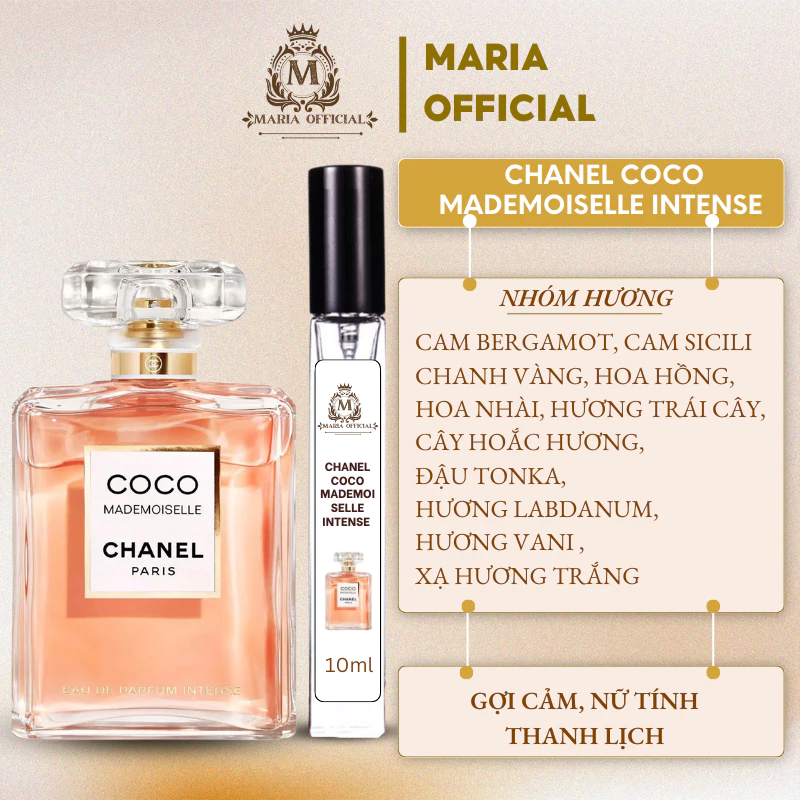Danh sách người Hồi Giáo đoạt giải Nobel
Giải thưởng Nobel, hay Giải Nobel Thụy Điển, số ít: Nobelpriset, Na Uy: Nobelprisen), là một tập các giải thưởng quốc tế được tổ chức trao thưởng hằng năm kể từ năm 1901 cho những cá nhân đạt thành tựu trong lĩnh vực vật lý, hoá học, y học, văn học, kinh tế và hòa bình; đặc biệt là giải hoà bình có thể được trao cho tổ chức hay cho cá nhân.[1] Vào năm 1969[2][3], Ngân hàng Thụy Điển đưa thêm vào một giải về lĩnh vực khoa học kinh tế, theo di chúc của nhà phát minh người Thụy Điển Alfred Nobel năm 1895. Các giải thưởng Nobel và giải thưởng về Khoa học được trao tặng hơn 881 người.[4] trong đó 12 hoặc 1,4% là người Hồi giáo.
Người Hồi giáo chiếm hơn 23% tổng dân số thế giới.[5][6][7] Và đến năm 2015, mười hai người đoạt giải Nobel là người Hồi giáo. Hơn một nửa trong số mười hai nhà khoa học Hồi giáo đoạt giải Nobel đã được trao giải Nobel trong thế kỷ 21. Bảy trong số mười hai người Hồi giáo đoạt giải Nobel hoà bình, bao gồm một giải thưởng dành cho Yasser Arafat. Người nhận giải Nobel về Vật lý năm 1979, Abdus Salam, là thành viên của cộng đồng Hồi giáo Ahmadiyya của Pakistan.
Hòa Bình
[sửa | sửa mã nguồn]| Năm | Chân Dung | Người Thắng Giải Nobel | Quốc gia và nghệ nghiệp | Cơ sở lý luận | Ý kiến |
|---|---|---|---|---|---|
| 1978 | 
|
Anwar al-Sadat (25 tháng 12 năm 1918 - 6 tháng 10 năm 1981) | Ông cùng với Menachem Begin đã được trao Giải Nobel Hòa bình 1978 vì sự đóng góp của họ cho hai hiệp định khung về hòa bình ở Trung Đông và về hòa bình giữa Ai Cập và Israel, được ký kết tại Trại David vào ngày 17 tháng 9 năm 1978.[8] | Người Hồi giáo đầu tiên nhận giải Nobel.[9][10][11][12][13][14][15] | |
| 1994 | 
|
Yasser Arafat (24 tháng 8 năm 1929 - 11 tháng 11 năm 2004) | Giải thưởng Nobel Hòa bình 1994 được trao cho Arafat, Shimon Peres và Yitzhak Rabin "vì những nỗ lực của họ để tạo ra hòa bình ở Trung Đông.[16][17] | Người Hồi giáo Palestinian đầu tiên nhận giải Nobel.[9][18][19][20][21][22] | |
| 2003 | 
|
Shirin Ebadi (sinh ngày 21 tháng 6 năm 1947) | Giải thưởng Nobel Hòa bình năm 2003 đã được trao cho Ebadi "vì những nỗ lực của bà về dân chủ và nhân quyền. Bà đã tập trung đặc biệt vào cuộc đấu tranh cho quyền của phụ nữ và trẻ em.[23] | Người Iran đầu tiên và duy nhất nhận được giải Nobel. Bà cũng là người phụ nữ Hồi giáo đầu tiên được nhận một danh dự như vậy.[9][24][25][26][27] Lưu ý rằng Doris Lessing sinh ra và lớn lên trong 5 năm trong nhà nước hiện đại Iran là một đồng nghiệp đoạt giải. | |
| 2005 | 
|
Mohamed El Baradei (sinh ngày 17 tháng 6 năm 1942) | Giải Nobel Hòa bình năm 2005 được trao cho El Baradei và IAEA vì những nỗ lực của họ nhằm ngăn chặn sử dụng năng lượng hạt nhân vì mục đích quân sự và để đảm bảo rằng năng lượng hạt nhân cho các mục đích hòa bình được sử dụng một cách an toàn nhất.[28][29] | Ông là người Ai Cập thứ hai được trao giải Nobel Hòa bình (2005).[9][30][31][32][33] | |
| 2006 | 
|
Muhammad Yunus (sinh ngày 28 tháng 6 năm 1940) | Giải Nobel Hòa bình năm 2006 được trao cho Ngân hàng Yunus và Ngân hàng Grameen "vì những nỗ lực của họ để tạo ra sự phát triển kinh tế và xã hội từ bên dưới".[34] | Người đoạt giải Nobel Hồi giáo đầu tiên của Bangladesh, và người thứ ba từ Bengal thắng giải Nobel[9][35][36][37][38][39][40] | |
| 2011 | 
|
Tawakel Karman (sinh ngày 7 tháng 2 năm 1979) | Giải Nobel Hòa bình năm 2011 đã được trao cho Ellen Johnson Sirleaf, Leymah Gbowee và Karman "vì cuộc đấu tranh bất bạo động của họ vì sự an toàn của phụ nữ và quyền của phụ nữ trong việc tham gia đầy đủ vào công việc xây dựng hòa bình".[41] | Người phụ nữ Ả Rập đầu tiên và người Yemen đầu tiên nhận giải Nobel.[42][43][44][45][46] | |
| 2014 | 
|
Malala Yousafzai (sinh ngày 12 tháng 7 năm 1997) | Giải Nobel Hòa bình năm 2014 đã được trao cho Kailash Satyarthi và Yousafzai, "vì cuộc đấu tranh chống lại sự đàn áp trẻ em và thanh thiếu niên và quyền của tất cả trẻ em được đi học hành.[47] | Năm 17 tuổi, Yousafzai là người trẻ nhất đoạt giải Nobel.[48] Cô cũng là người Pakistan thứ hai và người Pashtun đầu tiên được trao giải Nobel.[49] |
Vật Lý
[sửa | sửa mã nguồn]| Năm | Chân Dung | Người Thắng Giải Nobel | Quốc gia và nghệ nghiệp | Cơ sở lý luận | Ý kiến |
|---|---|---|---|---|---|
| 1979 | 
|
Mohammad Abdus Salam (29 tháng 1 năm 1926 - 21 tháng 11 năm 1996) |
Giải thưởng Nobel năm 1979 về Vật lý đã được trao cho Sheldon Lee Glashow, Salam và Steven Weinberg "vì những đóng góp của họ cho lý thuyết về sự tương tác yếu và điện từ thống nhất giữa các hạt cơ bản, bao gồm, ví dụ, dự đoán dòng điện trung hòa yếu.[50] | Ông là người Hồi giáo và Pakistan đầu tiên nhận được giải thưởng. Ông cũng là nhà khoa học Pakistan đầu tiên và duy nhất được trao giải Nobel[51][52] Ông là thành viên của cộng đồng Hồi giáo Ahmadiyya trên toàn thế giới, chính phủ Pakistan tuyên bố là không phải Hồi giáo ở Pakistan trong bản tu chính án hiến pháp năm 1974[53] |
Hóa Học
[sửa | sửa mã nguồn]| Năm | Chân Dung | Người Thắng Giải Nobel | Quốc gia và nghệ nghiệp | Cơ sở lý luận | Ý kiến |
|---|---|---|---|---|---|
| 1999 | 
|
Ahmed Zewail (26 tháng 2 năm 1946 - 2 tháng 8 năm 2016)[54] |
Giải Nobel năm 1999 về Hóa học đã được trao cho Ahmed Zewail "vì những nghiên cứu của ông về các trạng thái chuyển tiếp của các phản ứng hóa học sử dụng quang phổ femto giây"".[55] | Ông là nhà hóa học Hồi giáo đầu tiên được trao giải Nobel và là nhà khoa học Hồi giáo thứ hai.[9][56][57][58][59] | |
| 2015 | 
|
Aziz Sancar (sinh ngày 8 tháng 9 năm 1946) |
Giải Nobel năm 2000 về Hoá học được trao cho Aziz Sancar "cho các nghiên cứu cơ học về sửa chữa DNA[60] | Ông là nhà hóa học người Thổ Nhĩ Kỳ đầu tiên, và người Thổ Nhĩ Kỳ thứ nhì đến nay được trao giải Nobel và nhà khoa học Hồi giáo thứ ba.[Còn mơ hồ ][61][62]
| |
| 2023 | Moungi Bawendi (b. 1961) |
Giải Nobel hóa học năm 2023 đã được trao cho Moungi Bawendi "nhờ sự khám phá và phát triển khái niệm Chấm lượng tử"[63] | Ông là người Tunisia đầu tiên từ trước đến giờ đoạt giải Nobel.[64][65] |
Văn Học
[sửa | sửa mã nguồn]| Năm | Chân Dung | Người Thắng Giải Nobel | Quốc gia và nghệ nghiệp | Cơ sở lý luận | Ý kiến |
|---|---|---|---|---|---|
| 1988 | 
|
Naguib Mahfouz (11 tháng 12 năm 1911 - ngày 30 tháng 8 năm 2006) |
Giải thưởng Nobel năm 1988 về Văn học được trao cho Naguib Mahfouz "người thông qua những công trình giàu có hiện thực - hiện nay rõ ràng là hiện thực, bây giờ mang tính biểu tượng mơ hồ - đã hình thành một nghệ thuật kể chuyện Ả Rập áp dụng cho tất cả nhân loại".[66][67] | Tác giả Hồi giáo đầu tiên nhận giải thưởng như vậy[9][68][69] | |
| 2006 | 
|
Orhan Pamuk (sinh ngày 7 tháng 6 năm 1952) | Giải Nobel về văn học năm 2006 đã được trao cho Orhan Pamuk "người trong cuộc tìm kiếm linh hồn u sầu của thành phố quê hương đã phát hiện ra những biểu tượng mới cho cuộc đụng độ và xen kẽ các nền văn hoá.[70][71] | Người Turk đầu tiên nhận giải Nobel, ông tự mô tả mình là một người Hồi giáo Văn hoá kết hợp nhận dạng lịch sử và văn hoá với tôn giáo mà không tin vào mối quan hệ cá nhân với Thiên Chúa.[9][72][73][74] |
Các danh sách giải Nobel khác
[sửa | sửa mã nguồn]- Danh sách người Châu Á đoạt giải Nobel
- Danh sách người đoạt giải Nobel Vật lý
- Danh sách người đoạt giải Nobel Hóa học
- Danh sách người đoạt giải Nobel Sinh lý học và Y khoa
- Danh sách người đoạt giải Nobel Văn học
- Danh sách người đoạt giải Nobel Hòa bình
- Danh sách người đoạt giải Nobel Kinh tế
- Danh sách người da đen đoạt giải Nobel
- Danh sách người Hồi Giáo đoạt giải Nobel
- Danh sách người Kitô giáo đoạt giải Nobel
- Danh sách người Do Thái đoạt giải Nobel
- Danh sách phụ nữ đoạt giải Nobel
Đọc thêm
[sửa | sửa mã nguồn]Văn bản
[sửa | sửa mã nguồn]- Mysticism in Contemporary Islamic Political Thought:Orhan Pamuk và Abdolkarim Soroush by John von Heyking,University of Lethbridge[75]
- Islam, Melancholy, and Sad, Concrete Minarets: The Futility of Narratives In Orhan Pamuk's" The Black Book by Ian Almond[76]
Sách
[sửa | sửa mã nguồn]- The Age of Deception: Nuclear Diplomacy in Treacherous Times by Mohamed El Baradei.[77]
- Islam, Orientalism and Intellectual History: Modernity and the Politics of Exclusion since Ibn Khaldun (Library of Middle East History) by Mohammad R. Salama ISBN 1848850050 and ISBN 1848850050.[78]
- Orhan Pamuk and the Politics of Turkish Identity: From Islam to Istanbul by Erdag Goknar, ISBN 0415505380, ISBN 978-0415505383, Routledge Publication.[79]
Tiểu sử
[sửa | sửa mã nguồn]- Cosmic Anger: Abdus Salam - The First Muslim Nobel Scientist. by Gordon Fraser [71],ISBN 0199697124 & ISBN 978-0199697120.[80]
- Yasser Arafat (Biography (Lerner Hardcover)) by George Headlam-ISBN 0822550040 & ISBN 978-0822550044.[81]
- Anwar Sadat: Visionary Who Dared by Joseph Finklestone.[82]
Tự truyện
[sửa | sửa mã nguồn]- Iran Awakening: One Woman's Journey to Reclaim Her Life and Country (2007) by Shirin Ebadi (ISBN 9780676978025).[83]
- Ahmed Zewail Autobiography.[84]
- Banker to the Poor: The Autobiography of Muhammad Yunus, Founder of Grameen Bank. ISBN 0195795377 & ISBN 978-0195795370.[85]
- Sadat, Anwar (1978). In Search of Identity: An Autobiography. New York: Harper & Row. ISBN 978-0060137427.[86]
Chú thích
[sửa | sửa mã nguồn]- ^ “Which country has the best brains?”. BBC News. ngày 8 tháng 10 năm 2010. Bản gốc lưu trữ ngày 18 tháng 11 năm 2018. Truy cập ngày 6 tháng 12 năm 2011.
- ^ [1] Nobel Prize (2007), in Encyclopædia Britannica, accessed ngày 14 tháng 11 năm 2007, from Encyclopædia Britannica Online:
"An additional award, the Sveriges Riksbank Prize in Economic Sciences in Memory of Alfred Nobel, was established in 1968 by the Bank of Sweden and was first awarded in 1969"
- ^ [2] About the Nobel Prizes, Nobel Foundation, retrieved ngày 8 tháng 4 năm 2012
- ^ “All Nobel Laureates”. Nobel Foundation. Truy cập ngày 1 tháng 3 năm 2010.
- ^ “Executive Summary”. The Future of the Global Muslim Population. Pew Research Center. Truy cập ngày 22 tháng 12 năm 2011.
- ^ “Christian Population as Percentages of Total Population by Country”. Global Christianity. Pew Research Center. Bản gốc lưu trữ ngày 7 tháng 1 năm 2012. Truy cập ngày 22 tháng 12 năm 2011.
- ^ “Turmoil in the world of Islam”. Deccan Chronicle.
- ^ [3]"The Nobel Peace Prize 1978", Nobel Foundation,retrieved ngày 24 tháng 3 năm 2012.
- ^ a b c d e f g h [4] Lưu trữ 2012-01-06 tại Wayback Machine "Muslim Nobel Prize Winners", 'Islamic History Month Canada' accessed ngày 24 tháng 3 năm 2012
- ^ [5] 'Answer.com' article on Anwar al-Sadat, retrieved ngày 24 tháng 3 năm 2012.
- ^ [6]'Nobel Lecture, ngày 10 tháng 12 năm 1978' by Anwar Sadat, Nobel Foundation,retrieved ngày 5 tháng 4 năm 2012.
- ^ [7] Lưu trữ 2012-01-19 tại Wayback Machine"The Islamization Of Ai Cập" by Adel Guindy,retrieved ngày 7 tháng 4 năm 2012.
- Sadat's famous slogan, "I am a Muslim president of a Muslim state" '
- ^ [8]"Anwar Al-Sadat, The First Islamist Ruler In Egypt's Modern History", Coptic Nationalism,posted ngày 30 tháng 3 năm 2012, retrieved ngày 7 tháng 4 năm 2012.
- "The Pope must understand that I am a Muslim President of a Muslim State"
- Source: 'The exact words of Sadat in Arabic are: "إن البابا يجب أن يعلم أنني رئيس مسلم لدولة مسلمة." These words Mohamed Hassanein Heikal translates in his book, Autumn of Fury, as, "The Pope must understand that I am the Muslim President of a Muslim country." [Mohamed Heikal, Autumn of Fury, the Assassination of Sadat (London; Corgi Book; 1984); p. 228] This is not an accurate translation. The words should be translated as in the text of my article with an emphasis on the words "a Muslim State", that is Egypt.'
- ^ [http://www.nndb.com/people/954/000024882/'[liên kết hỏng]Anwar Sadat', NNDB,retrieved ngày 7 tháng 4 năm 2012.'Muslim'
- ^ [9] Lưu trữ 2014-08-18 tại Wayback Machine Peacemaker hero Anwar al-Sadat by Youssef, 'The My Hero Project', accessed ngày 21 tháng 3 năm 2012.
- "Sadat was a devout Muslim from his early days, benefiting from an Islamic education"
- ^ [10] 'Yasser Arafat-Biography', Nobel Foundation,retrieved ngày 5 tháng 4 năm 20122.
- ^ [11]"The Nobel Peace Prize 1994", Nobel Foundation,retrieved ngày 24 tháng 3 năm 2012.
- ^ “Yasser Arafat - Biographical”. nobelprize.org.
- ^ [12]"Yasser Arafat-Nobel Lecture", Nobel Foundation,retrieved ngày 5 tháng 4 năm 2012.
- ^ [13] Lưu trữ 2012-07-21 tại Archive.today'The Muslim Arafat',retrieved ngày 5 tháng 4 năm 2012.
- ^ [14] 'Yasser Arafat', NNDB, retrieved ngày 7 tháng 4 năm 2012.'Muslim'
- ^ [15] Jewish Virtual Library, accessed ngày 24 tháng 3 năm 2012.
- "a Sunni Muslim".
- ^ [16]"The Nobel Peace Prize 2003", Nobel Foundation, retrieved ngày 24 tháng 3 năm 2012.
- ^ [17] "Nobel Peace Prize winner promotes her new book The Golden Cage", by Jasmine Gould, 'Connect2Mason',dated ngày 26 tháng 4 năm 2011, retrieved ngày 4 tháng 4 năm 2012.
- "The first Iranian and Muslim woman to win the Nobel Peace Prize for her work in human rights"
- ^ [18] Lưu trữ 2016-08-28 tại Wayback Machine"Shirin Ebadi – Iran 2003", 'Meet the Laureates', Nobel Women's Initiative,accessed ngày 4 tháng 4 năm 2012.
- "She is the first Muslim woman to receive the Nobel Peace Prize"
- ^ [19]"In the name of the God of Creation and Wisdom", Nobel Lecture by Shirin Ebadi, Oslo, ngày 10 tháng 12 năm 2003, Nobel Foundation, retrieved ngày 4 tháng 4 năm 2012.
- ^ [20]"Shirin Ebadi: A Conscious Muslim" by Diana Hayworth, accessed ngày 24 tháng 3 năm 2012.
- "For some, Ms. Ebadi is a source of inspiration and pride, as she is the first Muslim woman and only Iranian to receive the Nobel Peace Prize."
- ^ [21]"The Nobel Peace Prize 2005", Nobel Foundation,retrieved ngày 24 tháng 3 năm 2012.
- ^ [22]"Mohamed El-Baradei-Biography", Nobel Foundation,retrieved ngày 5 tháng 4 năm 2012.
- ^ [23] Lưu trữ 2012-11-04 tại Wayback Machine"Outgoing IAEA chief leaves complex legacy",Jahn, George (ngày 30 tháng 11 năm 2009), Associated Press, accessed ngày 5 tháng 2 năm 2011 on msnbc.com.
ElBaradei, who describes himself as having a Muslim background, sometimes cites his favorite Christian prayer when speaking of his role on the world stage.
- ^ [24] "NNDB article on Mohamed El Baradei", retrieved ngày 24 tháng 3 năm 2012.'Muslim'.
- ^ [25] "Muslim Contribution to World Peace" by Minhaj Qidwai, accessed ngày 21 tháng 3 năm 2012.
- "Recipient of Nobel Peace Prize Mohamed ElBaradei an Egyptian Muslim can be a role Model for all those who want to contribute towards peace and prosperity in the modern world."
- ^ [26] 'Nobel Lecture by Mohamed El-Baradei, Oslo, ngày 10 tháng 12 năm 2005.', Nobel Foundation, retrieved ngày 5 tháng 4 năm 2012.
- "I am an Egyptian Muslim"
- ^ [27]"The Nobel Peace Prize 2006", Nobel Foundation,retrieved ngày 24 tháng 3 năm 2012.
- ^ [28]"Yunus martyred, Bangladesh marred" by 'Misha Hussain', Dawn.com,ngày 6 tháng 4 năm 2011, retrieved ngày 7 tháng 4 năm 2012.
"a Bengali and a Muslim" - ^ [29] Lưu trữ 2014-08-09 tại Wayback Machine "Muhammad Yunus Ways", 'Islamic Inspiration', published ngày 27 tháng 3 năm 2011, retrieved ngày 24 tháng 3 năm 2012.
"he is a Muslim" - ^ [30]'Muhammad Yunus (1940-)', The Union of Islamic World Students,retrieved ngày 5 tháng 4 năm 2012,'a devout muslim'
- ^ [31]'Muhammad Yunus', NNDB,retrieved ngày 5 tháng 4 năm 2012.'Muslim'
- ^ [32]"Microcredit pioneer wins Nobel Peace Prize — and puts Episcopalian- and Anglican combatants to shame",The Questioning Christian, dated ngày 13 tháng 10 năm 2006, retrieved ngày 5 tháng 4 năm 2012.
- ^ [33] Lưu trữ 2012-03-06 tại Wayback Machine, Microfinance và Islamic Finance - A Perfect Match by Dr. Linda Eagle, accessed ngày 24 tháng 3 năm 2012.
- "A Muslim Bangladeshi economist and economics professor"
- ^ [34]"The Nobel Peace Prize 2011", Nobel Foundation,retrieved ngày 24 tháng 3 năm 2012.
- ^ [35] Democracy Now! article on Tawakel Karman, "Yemeni Activist Tawakkul Karman, First Female Arab Nobel Peace Laureate: A Nod for Arab Spring", dated ngày 7 tháng 10 năm 2011, retrieved ngày 21 tháng 3 năm 2012.
- ^ [36]"Tawakul Karman, Nobel Peace Prize Laureate, Talks the Talk and Walks the Walk" by 'Sahar Taman', The Huffington Post, published ngày 8 tháng 10 năm 2011, retrieved ngày 7 tháng 4 năm 2012.
- "a Yemeni Muslim woman"
- ^ [37]"In the name of God the Compassionate the Merciful",Nobel Lecture by Tawakkul Karman, Oslo, 10. December 2011, Nobel Foundation,retrieved ngày 5 tháng 4 năm 2012.
- ^ [38] Lưu trữ 2012-07-15 tại Archive.today "Tawakel Karman (The Nobel Peace Prize winner 2011) & Hijab" by 'Sarah Ahmed', dated ngày 12 tháng 12 năm 2011, retrieved ngày 21 tháng 3 năm 2012.
- "She is a co-recipient of the 2011 Nobel Peace Prize, becoming the first Yemeni, the first Arab woman, and the second Muslim woman to win a Nobel Prize and the youngest Nobel Peace Laureate to date."
- ^ [39] Lưu trữ 2017-10-08 tại Wayback Machine "Tawakkul Karman is the first arab woman and the youngest Nobel Peace Laureate in hijab", 'Haute Hijab', ngày 20 tháng 12 năm 2011, accessed ngày 21 tháng 3 năm 2012.
- "Tawakkul Karman, a Muslim, was the first Arab woman awarded the Nobel Peace Laureate"
- ^ “The Nobel Peace Prize 2014” (PDF). Nobel Foundation. Truy cập ngày 10 tháng 10 năm 2014.[liên kết hỏng]
- ^ “BBC News - Malala and Kailash Satyarthi win Nobel Peace Prize”. BBC News.
- ^ “Malala Yousafzai, Kailash Satyarthi win Nobel Peace Prize”. Dawn. ngày 14 tháng 10 năm 2014. Truy cập ngày 14 tháng 10 năm 2014.
- ^ [40]"The Nobel Prize in Physics 1979", Nobel Foundation, retrieved ngày 24 tháng 3 năm 2012.
- ^ [41] "Abdus Salam-Biography", Nobel Foundation, retrieved ngày 5 tháng 4 năm 2012.
- "Abdus Salam is known to be a devout Scientist, whose religion does not occupy a separate compartment of his life; it is inseparable from his work and family life. He once wrote: 'The Holy Quran enjoins us to reflect on the verities of Allah's created laws of nature; however, that our generation has been privileged to glimpse a part of His design is a bounty and a grace for which I render thanks with a humble heart.'",
- Primary Source:The biography was written by Miriam Lewis, now at IAEA, Vienna, who was at one time on the staff of ICTP (International Centre For Theoretical Physics, Trieste).
- ^ [42] Google Books,Ghani, Abdul (1982). Abdus Salam: a Nobel laureate from a Muslim country: a biographical sketch, Publisher-Maʻaref Printers, Karachi. tr. i–xi.,retrieved ngày 8 tháng 4 năm 2012.
- ^ Government of Pakistan, (GoPAK). “Second Amendment”. Ministry of Law and Justice. The Electronic Government of Pakistan.
- ^ “Egyptian Chemist Zewail, Noble Prize-Winner, Dies at 70”. The New York Times. Associated Press. ngày 2 tháng 8 năm 2016. Truy cập ngày 9 tháng 8 năm 2016.
- ^ [43] "The Nobel Prize in Chemistry 1999", Nobel Foundation, retrieved ngày 24 tháng 3 năm 2012.
- ^ [44] Muslim "Nobel Prize Winner Ahmed Hassan Zewail" by Bernie, 'Planck's constant', accessed ngày 24 tháng 3 năm 2012.
- ^ [45] Lưu trữ 2018-06-18 tại Wayback Machine Ahmed Zewail's caltech site.
- ^ [46] Lưu trữ 2013-08-10 tại Wayback Machine Science in the Islamic world: an interview with Nobel Laureate Ahmed Zewail, The Fountain Magazine, Issue 67, January–February 2009, retrieved ngày 21 tháng 3 năm 2012.
- "I'm very proud of the value system that I was given by my family and the way I grew up as a Muslim in Egypt."
- ^ [47] Lưu trữ 2010-11-02 tại Wayback Machine "The West and Islam need not be in conflict" by 'Ahmed Zewail', The Independent, ngày 24 tháng 10 năm 2006, retrieved ngày 11 tháng 4 năm 2012.
- "The author is the only Arab Muslim to receive the Nobel Prize in science, 1999"
- ^ “The Nobel Prize in Chemistry 2015”. Nobelprize.org.
- ^ Aziz Sancar won 2015 Nobel prize
- ^ [48]
- ^ “The Nobel Prize in Chemistry 2023”. Nobelprize.org.
- ^ cite web| url=https://www.thenationalnews.com/mena/tunisia/2023/10/05/moungi-bawendi-the-tunisian-american-chemistry-nobel-prize-laureate/#:~:text=Tunisian-American%20Moungi%20Bawendi%20has,that%20emit%20exceptionally%20pure%20light.%7Cwebsite = thenationalnews.com}}
- ^ ahmedbqa (5 tháng 10 năm 2023). “Muslim scientist wins 2023 Nobel Prize in Chemistry for innovation of quantum dots”. Muslim Network TV (bằng tiếng Anh). Truy cập ngày 6 tháng 10 năm 2023.
- ^ [49] "The Nobel Prize in Literature 1988", Nobel Foundation, retrieved ngày 24 tháng 3 năm 2012.
- ^ [50] 'Nobel Lecture by Naguib Mahfouz', Nobel Foundation,retrieved ngày 5 tháng 4 năm 2012.
- ^ [51] Lưu trữ 2012-06-09 tại Wayback Machine "Naguib Mahfouz's Socialistic Sufism: An Intellectual Journey from the Wafd to Islamic Mysticism", Yagi, Kumiko, Ph.D. Harvard University, 2001. 235 pages. Adviser: Graham, William A. Publication Number: AAT 3028463, accessed ngày 24 tháng 3 năm 2012.
- ^ [52] "Naguib Mahfouz – The Son of Two Civilizations" by 'Anders Hallengren', article on Naguib Mahfouz, Nobel Foundation, retrieved ngày 24 tháng 3 năm 2012.
- "a pious moslem believer"
- ^ [53] "The Nobel Prize in Literature 2006", Nobel Foundation, retrieved ngày 24 tháng 3 năm 2012.
- ^ [54] 'Orhan Pamuk-Autobiography', Nobel Foundation, retrieved ngày 5 tháng 4 năm 2012.
- ^ [55] Lưu trữ 2011-08-31 tại Wayback Machine "Orhan Pamuk, Nobel Laureate, in Conversation with Reza Aslan", Levantine Cultural Center, posted ngày 16 tháng 10 năm 2009, accessed ngày 21 tháng 3 năm 2012.
- ^ [56] Lưu trữ 2016-06-17 tại Wayback Machine "Orhan Pamuk: Incompatibility of Islam and Democracy Has Been Disproven", 'Islam Today', dated ngày 30 tháng 3 năm 2011, retrieved ngày 5 tháng 4 năm 2012.
- ^ [57] "Do you consider yourself a Muslim?",
"Orhan Pamuk and the Turkish Paradox", Spiegel Online, dated ngày 21 tháng 12 năm 2005, retrieved ngày 21 tháng 3 năm 2012.
- "I consider myself a person who comes from a Muslim culture. In any case, I would not say that I'm an atheist. So I'm a Muslim who associates historical and cultural identification with this religion. I do not believe in a personal connection to God; that's where it gets transcendental. I identify with my culture, but I am happy to be living on a tolerant, intellectual island where I can deal with Dostoyevsky and Sartre, both great influences for me."
- ^ [58] Lưu trữ 2021-03-14 tại Wayback MachineMysticism in Contemporary Islamic Political Thought by John von Heyking, University of Lethbridge,Volume XIX, Nos. 1 and 2, 2006, Humanitas accessed ngày 5 tháng 4 năm 2012.
- ^ [59][60]New Literary History,Vol.34,No.1,Inquiries into ethics and narratives(Winter 2003),pp. 75-90, retrieved ngày 5 tháng 4 năm 2012.
- ^ [61] Sunday Book Review, The New York Times, By Leslie H. Gelb, published ngày 6 tháng 5 năm 2011, retrieved ngày 21 tháng 3 năm 2012.
- ^ [62] intellectual history of muslims, retrieved ngày 6 tháng 4 năm 2012.
- ^ [63] Orhan Pamuk and the Politics of Turkish Identity: From Islam to Istanbul [Paperback],retrieved ngày 5 tháng 4 năm 2012.
- ^ [64] Lưu trữ 2012-01-29 tại Wayback Machine "Cosmic Anger: Abdus Salam - The First Muslim Nobel Scientist" by Gordon Fraser, Oxford University Press, retrieved ngày 24 tháng 3 năm 2012.
- ^ [65] Yasser Arafat biography, retrieved ngày 6 tháng 4 năm 2012.
- ^ [66] Google Books-Anwar Sadat:visionary who dared, retrieved ngày 6 tháng 4 năm 2012.
- ^ [67] Shirin Ebadi's autobiographical book, retrieved ngày 6 tháng 4 năm 2012.
- ^ [68] Ahmed Zewail Autobiography, Nobel Foundation, retrieved ngày 5 tháng 4 năm 2012.
- ^ [69] Autobiography of Muhammad Yunus, retrieved ngày 6 tháng 4 năm 2012.
- ^ [70] Anwar El Sadat: In Search of Identity an Autobiography, retrieved ngày 6 tháng 4 năm 2012.
Liên kết ngoài
[sửa | sửa mã nguồn]- [72] Lưu trữ 2012-03-27 tại Wayback Machine "Muslim Nobel Prize Winners", 'BZNotes', accessed ngày 21 tháng 3 năm 2012.
- [73] Lưu trữ 2012-01-28 tại Wayback Machine "Muslim Nobel Prize Winners", Scribd, accessed ngày 21 tháng 3 năm 2012.
- [74] "Nobel Laureates and the Muslim World" by Saleem H. Ali, Newsvine, ngày 14 tháng 2 năm 2010, retrieved ngày 21 tháng 3 năm 2012.
- [75][liên kết hỏng] "Nobel laureates of the Islamic world" - S Iftikhar Murshed, The News International, ngày 3 tháng 4 năm 2011, retrieved ngày 21 tháng 3 năm 2012.
- [76] "Professor Abdus Salam", accessed ngày 4 tháng 4 năm 2012.
- [77] "No Nobels for the Muslim World" by Aziz Akhmad, The Express Tribune, published ngày 6 tháng 10 năm 2011, retrieved ngày 19 tháng 3 năm 2012.
- [78] "Muslim Nobel laureates: Muslim economist, writer win Nobel prizes",accessed ngày 24 tháng 3 năm 2012.
- [79] Lưu trữ 2013-02-04 tại Archive.today "Abdus Salam, 'First Muslim Nobel Laureate'", ‘The Culture Trip’, accessed ngày 21 tháng 3 năm 2012.
- "Abdus Salam was a theoretical physicist who became the first Pakistani and the first Muslim to be awarded the Nobel Prize in the sciences."
- [80] "Dr. Abdus Salam: Nobel Laureate in Physics",accessed ngày 4 tháng 4 năm 2012.
- [81] "Tawakul Karman speaks: Islam Supports Democracy", 'Onislam', ngày 10 tháng 12 năm 2011, accessed ngày 21 tháng 3 năm 2012.
- [82] "A Muslim woman's place is in society: Nobel Laureate", France 24, dated ngày 2 tháng 11 năm 2009, retrieved ngày 21 tháng 3 năm 2012.
- [83] Lưu trữ 2018-10-06 tại Wayback Machine "Nobel Prize reflects women's struggle in the Muslim world", retrieved ngày 19 tháng 3 năm 2012.
- [84] "Nobel Peace Prize Winner Tawakkul Karman Profile: The Mother of Yemen's revolution", The Huffington Post, dated ngày 7 tháng 10 năm 2011, retrieved ngày 19 tháng 3 năm 2012.
- [85] "Dear ‘World Community’: You Are Not Our Equals" by William A. Levinson, American Thinker, ngày 31 tháng 5 năm 2011, retrieved ngày 21 tháng 3 năm 2012.
- [86]"Nobel Prize winner highlights women’s role in Arab Spring",‘The Michigan Daily’,Published ngày 15 tháng 11 năm 2011, retrieved ngày 4 tháng 4 năm 2012.
- [87]"Nobel Peace Prize Winner Tawakul Karman: Islam No Threat to Democracy",reprinted ‘Positive Islam’, dated ngày 12 tháng 12 năm 2011, 1st printed Reuters[88] Lưu trữ 2013-06-17 tại Wayback Machine ngày 9 tháng 12 năm 2011, accessed ngày 4 tháng 4 năm 2012.
- [89]"The Nobel Prize - Muslim Winners",by Sadaqat,accessed ngày 4 tháng 4 năm 2012.
- [90] Lưu trữ 2012-05-21 tại Wayback Machine"Women Nobel Peace Laureates Congratulate Three New Women Laureates", Nobel Women's Initiative,dated ngày 7 tháng 10 năm 2011, retrieved ngày 4 tháng 4 năm 2012.
- Karman joins Shirin Ebadi, who won the Nobel Peace prize in 2003 for her work to bring equal rights to women in Iran, as the second Muslim woman to win the Nobel Peace prize.
- "As a Muslim woman, I am well aware of the difficult and severe conditions of your work and struggle," said Ebadi in her letter today to Karman. Karman receives frequent death threats, and was thrown in jail last January. "I admire your tremendous work and courage. This victory will certainly inspire and reassure the million of Muslim women who suffer from discrimination and who fight for equality of rights between men and women—and also sends a message to countries going through the Arab Spring that true democracy will only be achieved if women also receive equal rights."
- [91] Lưu trữ 2021-06-30 tại Wayback Machine"Pamuk on Multiculturalism, Secularism, Islam, and the EU ",‘Turkish Politics in Action’,dated ngày 18 tháng 1 năm 2009, retrieved ngày 5 tháng 4 năm 2012.
- [92] Lưu trữ 2021-06-25 tại Wayback Machine"Two Souls -- In Europe And Turkey",an interview with Orhan Pamuk by Nathan Gardels,‘Nobel Laureates Plus’,NPQ,dated ngày 28 tháng 11 năm 2006, retrieved ngày 5 tháng 4 năm 2012.
- [93]"Nobel author bridges Islam and the West" by Mark Feeney, The Boston Globe,ngày 13 tháng 10 năm 2006, retrieved ngày 5 tháng 4 năm 2012.
- [94]"Listen to the damned" by Orhan Pamuk, The Guardian,dated ngày 29 tháng 9 năm 2001, retrieved ngày 5 tháng 4 năm 2012.
- "It is not Islam or poverty that succours terrorism, but the failure to be heard"
- [95]"Muhammad Yunus addresses Islamic finance forum " by Talal Malik,‘Arabian Business’,dated ngày 13 tháng 4 năm 2008, retrieved ngày 5 tháng 4 năm 2012.
- [96] Lưu trữ 2009-02-10 tại Wayback Machine‘Anwar Sadat’, about.com,retrieved ngày 5 tháng 4 năm 2012.
- [97] Lưu trữ 2010-10-25 tại Wayback Machine"Thirty years later, Sadat's widow still hopes for peace", CNN,dated ngày 26 tháng 3 năm 2009, retrieved ngày 5 tháng 4 năm 2012.
- [98] Lưu trữ 2021-06-25 tại Wayback Machine"The Tragedy of Muslim Civilization" by Aftab Zaidi,Nirmukta, ngày 13 tháng 11 năm 2011, retrieved ngày 5 tháng 4 năm 2012.
- [99]"Naguib Mahfouz and modern ‘Islamic identity’" by ‘Mehnaz Mona Afridi’, UNISA, November 2008, retrieved ngày 7 tháng 4 năm 2012.
- "How closely have the changes and developments detailed in Mahfouz’s descriptions of ordinary Egyptian lives paralleled what the world has witnessed as ageneral growing "Islamization" of the Muslim world? In my research, I have found that other Muslim writers, such as Leila Ahmed (Egypt), Mohsin Hamid (Pakistan/India), and Orhan Pamuk (Turkey) have also observed and commented on the Islamization of the culture."
 GIẢM
6%
GIẢM
6%
 GIẢM
20%
GIẢM
20%
 GIẢM
42%
GIẢM
42%
 GIẢM
50%
GIẢM
50%
 GIẢM
49%
GIẢM
49%
 GIẢM
9%
GIẢM
9%



![Một số thông tin về Thất sắc Thủy tổ và Ác ma tộc [Demon] Tensura](https://i.pinimg.com/originals/63/6f/be/636fbe62f081f608f175329a09d20358.jpg)